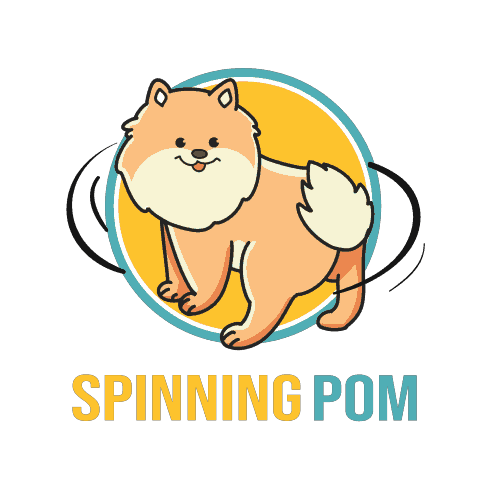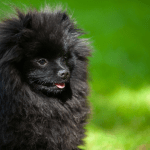For myself, like many others, my Pomeranian is more than a mere pet. With an upcoming move to a much larger apartment, I began to worry about how the move would affect my already anxious pal. While the vet suggested medication, I began to research for a more natural solution, specifically essential oils.
So, what are some of the best essential oils for dogs with anxiety? In order to use essential oils to treat your dog’s anxiety, you will need to consider the breed and size of your dog along with any other conditions. After thorough research, contacting your veterinarian is the second step.
If your veterinarian does not have oils on hand, it is of extreme importance that you research the company you order from. Look for a company that has their oil
As we become more aware of the power of nature and holistic remedies, it makes sense that we would turn to these methods to help our pets overcome anxiety. However, without proper research and due diligence, you could accidentally harm your beloved four pawed friend.
Never fear. While this may seem overwhelming with the vases amount of information available on the internet, the remainder of the article condenses and synthesizes the information to help you make the most informed choice for your canine friend. After all, we all know that we are our best when they are their best.
Best Essential Oils for Dogs with Anxiety
When it comes to picking the best essential oils, there are tons of essential oils to consider. From lavender which is used often for humans to cedar oil which you may be unfamiliar, the choices are seemingly endless. Below we will lay out the twelve best essential oils for dogs with anxiety.
Here are some of the best essential oils for dogs with anxiety:
- Lavender
- Cedar Oil
- Peppermint
- Chamomile
- Lemongrass
- Frankincense Oil
- Ylang Ylang
- Elemi
- Marjoram
- Neroli
- Vetiver
- Sweet Orange
Lavender
The first oil on the list comes as no surprise. Lavender has been used to treat anxiety and soothe the mind for centuries. Mainly used topically, it is the perfect oil to use in addition to a massage to calm anxious dogs. However, lavender’s uses range from treating car sickness to aiding in sleep making it an all-purpose oil.
Cedar Oil
Cedar oil is another popular oil for dogs. In addition to possessing calming and anxiety reducing properties, cedar oil is a known flea and tick repellent. Often used in a mixed spray, cedar oil’s dual usage makes it a great essential oil to have on hand.
Peppermint
Peppermint oil provides a cooling sensation that calms canines. The oil can be added to water for ingestion or massaged in topically. Great for calming anxious dogs on a warm day, peppermint helps reduce anxiety and leaves your dog feeling refreshed and rejuvenated.
Chamomile
While our grandmother’s preferred chamomile tea, your dogs may prefer a few drops in his water or rubbed behind his ears. Chamomile posses nerve calming qualities in addition to being great for your Pom’s skin. Chamomile’s qualities make it perfect for a lap dog or any dog wanting to reduce anxiety to enjoy a day around the house.
Lemongrass
Similarly, lemongrass is often used as aromatherapy to treat stress, anxiety, and depression. Dogs should not ingest large amounts of lemongrass so it is best to use this oil topically. Simply rub a few drops behind your Pomeranian’s ears so that they can benefit from the aromatherapeutic properties.
Frankincense Oil
Since the time of the Egyptian pharaohs, frankincense oil has been used to elevate the spirits thereby calming anxiety. In addition, this amazing oil has been proven to speed healing in wounds and treat ulcers. Some even believe frankincense oil aids in the treatment of treating canine cancers, making frankincense truly a wonder oil.
Ylang Ylang
Ylang Ylang is another oil with wonderous health properties. Used topically in salves and ointments, Ylang Ylang calms the nerves while also possessing antibacterial properties.
In addition, Ylang Ylang treats anger and feelings of frustration, which is great for rescue animals. Ylang Ylang is another ointment that should be in your cabinet.
Elemi
Elemi is an analgesic and expectorant which works in addition to being a sedative. This can help anxious Pomeranians relax while also treating any physical symptoms that are causing your dog’s anxiety. This oil is perfect if seasonal allergies or an injury are exasperating or increasing your Pom’s anxiety.
Marjoram Oil
Marjoram oil perfects a nice massage for dogs and humans alike. Just a few drops of the oil rubbed into a paw or foot can help anxiety melt away. Use before bedtime to help your Pomeranian calm down and settle in for a good night’s rest. This oil is useful for high strung breeds and treating hyperactivity.
Neroli
Neroli provides a calming effect as well as possessing antidepressant properties. Neroli can be particularly useful in treating night terrors. So if your dog’s anxiety is preventing them and you from getting a full night’s rest, neroli may be just the oil you are looking for.
Vetiver
Vetiver is particularly useful in helping calm dogs that are afraid of loud noises, making it another good choice for owners of rescue dogs. Vetiver may also help dogs reduce barking, making it the perfect oil for dogs living in the city or in apartment complexes while dealing with anxiety.
Sweet Orange
Finally, sweet orange has a calming and refreshing effect. This oil may be used either topically or orally for a burst of calm, focused energy. This is perfect for keeping your dog calm during walks or trips to the dog park. In addition, sweet orange has a beautiful clean, citrus smell sure to keep your dog smelling great even after a sweaty workout.
With all of these great choices for essential oils, it may be difficult to choose just one to use to treat your dog’s anxiety. Do not worry. You do not have to choose just one. The most successful treatment of anxiety comes from a regimen, not a simple application of one essential oil.
These regimens can look very different depending on the needs of your dog. While lavender may be used several times during the day, neroli may be applied before bed. Meanwhile, you may choose to use peppermint or cedar oil in relation to outdoor time.
While the use of several oils at different times of the day may serve your dog, others prefer to use oil combinations. Combining oils helps you create a mixture customized for your dog’s specific needs.
If you are not confident in your ability to combine oils, there are plenty of premixed blends with specific breeds in mind. These can be found online or in speciality holistic dog shops.
Make sure to keep a journal of your use and how your dog responds when starting a new holistic regimen. While all of the oils discussed are safe for animal use, different dogs may respond differently or may have developed an allergy.
What helped one dog might not help yours and vice versa therefore it’s important to not give up if the oils do not work at first, continue keeping your journal, and fine-tuning the blend or regimen to create a treatment plan that works for your dog’s anxiety and treats their specific symptoms.
Ensuring your oils come from a certified source is also paramount when effectively treating your dog’s anxiety. There are no FDA standards for essential oils. You can easily find oils online that contain little to no essential oils but are rather bottled chemicals.
Find oils that have been certified and tested by independent third-party companies. These oils have been tested by other companies to ensure that what they say is in their oils is all that is in them. While the other non-tested oils may be cheaper, there is no way of knowing what potentially harmful chemicals are in their essential oils.
How Will I Know If My Dog Has Anxiety?
So now that you have detailed information on the essential oils that can be used to treat anxiety, you may want to ensure that the symptoms you are treating are symptoms of anxiety, not a more serious condition. With a regimen targeted for anxiety, these oils will only help if your dog has anxiety.
While your dog may have any combination of the below symptoms, it is important to note that causes of anxiety vary and therefore symptoms and treatment varies as well.
There are three main causes of anxiety in canines: fear, separation, and age-related concerns. While some anxiety is easily treated, other anxiety is more difficult to treat. In these cases, the anxiety often manifests itself in undesirable and worrisome behaviors.
Symptoms of anxiety in dogs:
- Aggression
- Urinating of defecating inside the house
- Repetitive behaviors
- Panting
- Excessive barking
- Pacing
- Destructive behavior
Aggression in dogs is probably your biggest fear as an owner. Watching your sweet pup growl at your or others can be worrisome. However, if your dog is suffering from anxiety, this may simply be your dog’s way of letting you know they need some time alone or in a low sensory environment.
Using the bathroom in the house is another worry. After spending time training your dog, seeing them regress is worrisome. Never fear, this is simply a sign of their anxiety. Once the anxiety is properly treated, the bathroom incidents will decrease as well.
Like with human, repetitive behavior may seem like a quirk at first but can be a sign of underlying anxiety. Likewise, panting is a fear response. When the heart rate increase whether related to a quick jaunt around the neighborhood or intense fear, dogs will show an increase in panting.
Keeping a journal of when these behaviors occur may help you determine the cause of your dog’s anxiety. Determining the cause will help you craft a more effective treatment plan.
Pacing and restlessness can be a manifestation of anxiety as well. The inability to stop moving means your dog is constantly on alert. In the same vein, the excessive barking may also signal that your dog is on guard and feels as if it cannot rest. Both of these are indications of anxiety disorders.
If this is situational, determining the root of the problem will reduce the anxiety and allow your dog to rest. For other causes of anxiety, separate treatments, like essential oils, may help your dog rest.
Finally, destructive behaviors are concerning not only for your dog but for you as well. Destructive behaviors are common with separation anxiety. Dogs destroying property are often doing so in an attempt to find their human. This puts not only material things at risk, but also raises concerns for the dog’s safety.
All of the symptoms are concerning and should be viewed as a sign of anxiety, not misbehavior. As mentioned, keeping a log of your dog’s symptoms will help you get to the root of your dog’s anxiety. Finding the source of the anxiety is paramount for crafting a treatment plan.
As with any illness, you’re looking to treat the root of the problem, not the symptoms. It may be emotionally trying on you as well, but know that your pup is anxious, once treatment is completed, you will both be happier. You will have your loving pet back. Your Pom will know they are safe with an owner that has their best interest at heart.
It’s important to note that while treatment is effective, some dogs, specifically with age-related anxiety, will battle anxiety for the rest of their lives. However, with the help of essential oils and a caring owner, the remainder of their lives will be peaceful and full of love.
How to Properly Care for a Dog with Anxiety
Now that you have information on both anxiety in dogs and essential oils used to treat anxiety, you may be looking for still more information on how to properly care for a dog with anxiety. The need for more information is especially important if you are caring for a dog with age-related anxiety. Below is a list of some management options.
While discussing any treatment plan with your veterinarian is important, below are some common treatments and management options. These may be especially useful if you have a wait to get into your veterinarian.
Treatment and management of canine anxiety:
- Essential oils
- Professional training
- Body language
- Socialization
- Proper exercise and nutrition
- Anxiety medication
As discussed early in the article, there is a wide array of essential oils available for the treatment of anxiety in dogs. These range from lavender to sweet orange. Holistic approaches to treatment can be particularly effective, especially when treating situational anxiety such as a trip to the vet or large parties.
Professional training may also be a viable option. If your young dog is demonstrating anxious tendencies, obedience training may be an option. If your dog is suddenly demonstrating anxiety or dealing with age-related anxiety, professional dog trainers offer training options specifically designed for helping anxious dogs self regulate.
Watching your or other’s body language more closely may give you some insight into why your dog is anxious. Likewise, studying dog body language may give you insight into when your dog is giving you warning signs that your dog is becoming anxious. This will help you avoid undesirable outcomes.
Staying alone all the time is not healthy for humans or animals. Canines by nature are not solitary creatures. Proper socialization may help dogs deal with anxiety caused by either groups of animals or humans.
Proper exercise and nutrition are also vitally important. An understimulated dog may turn to destructive behaviors to let their energy out. Research your dog’s breed to determine the proper amount of exercise and strive to meet that daily.
Nutrition is also important to a healthy dog. Make sure you are reading the ingredients on the back of the dog food. Also, research the particular nutrition requirements for your dog’s breed. Meeting these will help your dog feel physically better and will help reduce anxiety.
Keep a daily record of your dog’s nutrition intake and activity along with their behaviors that day. This log will help you adjust dietary and exercise regimens to meet the needs of your dog so that they can be their best selves. Physical health and wellness are just as important in treating a dog’s mental health concerns as it is in humans.
If you have tried all of these methods and your dog is still experiencing anxiety, your vet may recommend anxiety medication. There are no ill effects of this medication. They may be just what your dog needs.
It is natural to feel guilty if your dog needs medication, but it is not your fault. Certain dogs and specific breeds, including Pomeranians, are genetically predisposed to anxiety. The anxiety is caused by genetics or hormones and is in no way your fault. By taking these steps to treat your dog’s anxiety, she will know that you love her with your whole heart.
A dog with anxiety can still lead a happy and fulfilling life. With a loving human, I know your dog will get the treatment they need. They will continue to be your best friend, a part of your family for many more years.





